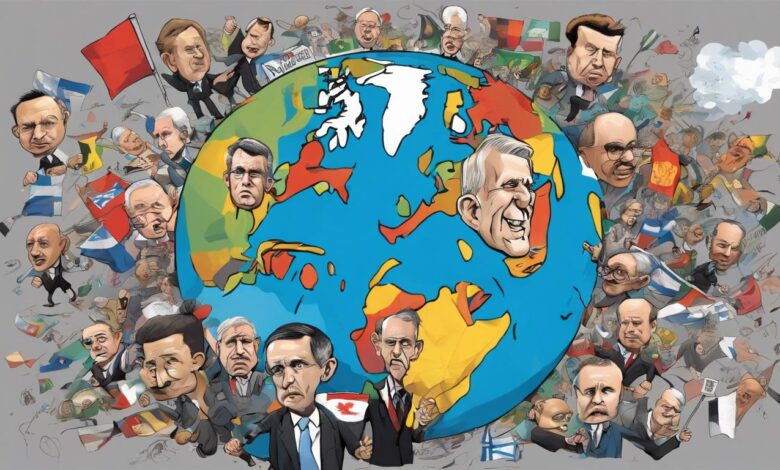Israel faces political turmoil and international pressure amidst mounting protests and regional conflict

With Prime Minister Benjamin Netanyahu at the helm, Israel navigates through a challenging period marked by domestic protests, international tensions over Gaza, and escalating Middle East violence. The situation puts Netanyahu’s leadership to the test, with implications for the broader region.
Israel is currently embroiled in a significant political and social turmoil, with Prime Minister Benjamin Netanyahu facing mounting pressure from both domestic protests and international partners. The core issues sparking unrest include a cabinet division over military service for ultra-Orthodox Jews and the detainment of hostages in Gaza. Protests have erupted in major cities such as Tel Aviv and Jerusalem, with demonstrators calling for action on the hostages and new elections. The US and other allies are urging Netanyahu to address the humanitarian crisis in Gaza and the aftermath of recent conflicts. This situation poses a substantial threat to Netanyahu’s leadership, potentially impacting the broader Middle East region.
In related international dynamics, over 4,400 US academics have urged President Joe Biden to adopt a firmer stance against Iran, implicating its support of militant groups in escalating Middle East violence. This resurgence of conflict, notably Hamas militants’ attacks on Israel, has also spilled over into neighboring countries. These academics advocate for supporting democratic resistance in Iran, moving away from diplomatic appeasements. Despite calls for a more aggressive approach towards Iran, the US public’s reluctance for further military involvement in the Middle East complicates the situation.
Meanwhile, in Australia, severe weather on the east coast has led to the cancellation of approximately 92 flights at Sydney airport and school closures in New South Wales. The state braces for potential flooding as Warragamba Dam is expected to spill over. This weather event has prompted the State Emergency Service to conduct numerous flood rescues, advising against non-essential travel.
The UK is facing internal and external pressures regarding its arms sales to Israel, especially after the death of three British aid workers in Gaza, an action criticized by Conservative MP Bob Seely as “shallow gesture politics”. The debate reflects a broader division within the Tory party and calls for the UK to review its relationship with countries like Israel, Saudi Arabia, and Turkey, balancing national interest with international humanitarian law.
Lastly, Israel has agreed to open three humanitarian routes into Gaza, a move prompted by a request from US President Joe Biden amid escalating humanitarian concerns. This decision follows an Israeli airstrike on a World Central Kitchen convoy, killing seven aid workers, including US-Canadian Jacob Flickinger, whose death has sparked outrage and calls for justice from his family. The opening of these routes aims to alleviate the humanitarian crisis in Gaza, marking a significant development in international efforts to ensure civilian and aid worker safety amidst the conflict.








